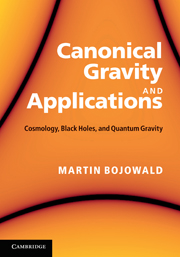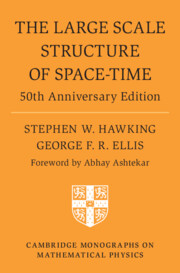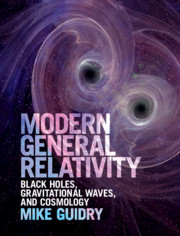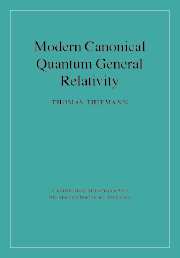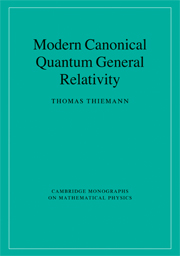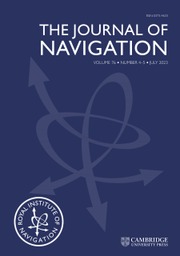Canonical Gravity and Applications
Canonical methods are a powerful mathematical tool within the field of gravitational research, both theoretical and experimental, and have contributed to a number of recent developments in physics. Providing mathematical foundations as well as physical applications, this is the first systematic explanation of canonical methods in gravity. The book discusses the mathematical and geometrical notions underlying canonical tools, highlighting their applications in all aspects of gravitational research from advanced mathematical foundations to modern applications in cosmology and black hole physics. The main canonical formulations, including the Arnowitt-Deser-Misner (ADM) formalism and Ashtekar variables, are derived and discussed. Ideal for both graduate students and researchers, this book provides a link between standard introductions to general relativity and advanced expositions of black hole physics, theoretical cosmology or quantum gravity.
- Gives a thorough account of gravity theory, from advanced mathematical foundations to modern applications in cosmology and black hole physics
- Provides mathematical foundations as well as physical applications to give a systematic explanation of canonical methods in gravity
- Touches on large areas of theoretical gravitational research: cosmology, black holes, quantum gravity
Reviews & endorsements
'… the combination of rarely found material and the presentation of a very powerful formalism with which to solve problems in astrophysics and cosmology makes for a highly recommended book and a very valuable addition to the literature.' The Observatory
Product details
No date availableHardback
9780521195751
312 pages
254 × 179 × 19 mm
0.77kg
40 b/w illus. 69 exercises
Table of Contents
- 1. Introduction
- 2. Isotropic cosmology: a prelude
- 3. Hamiltonian formulation of general relativity
- 4. Model systems and perturbations
- 5. Global and asymptotic properties
- 6. Quantum gravity
- Appendix
- References
- Index.

